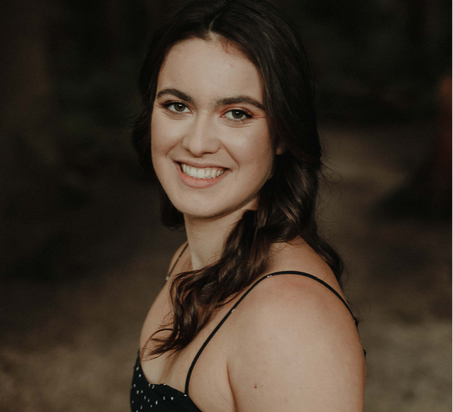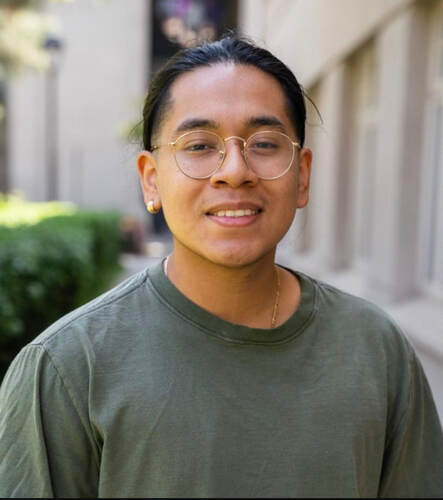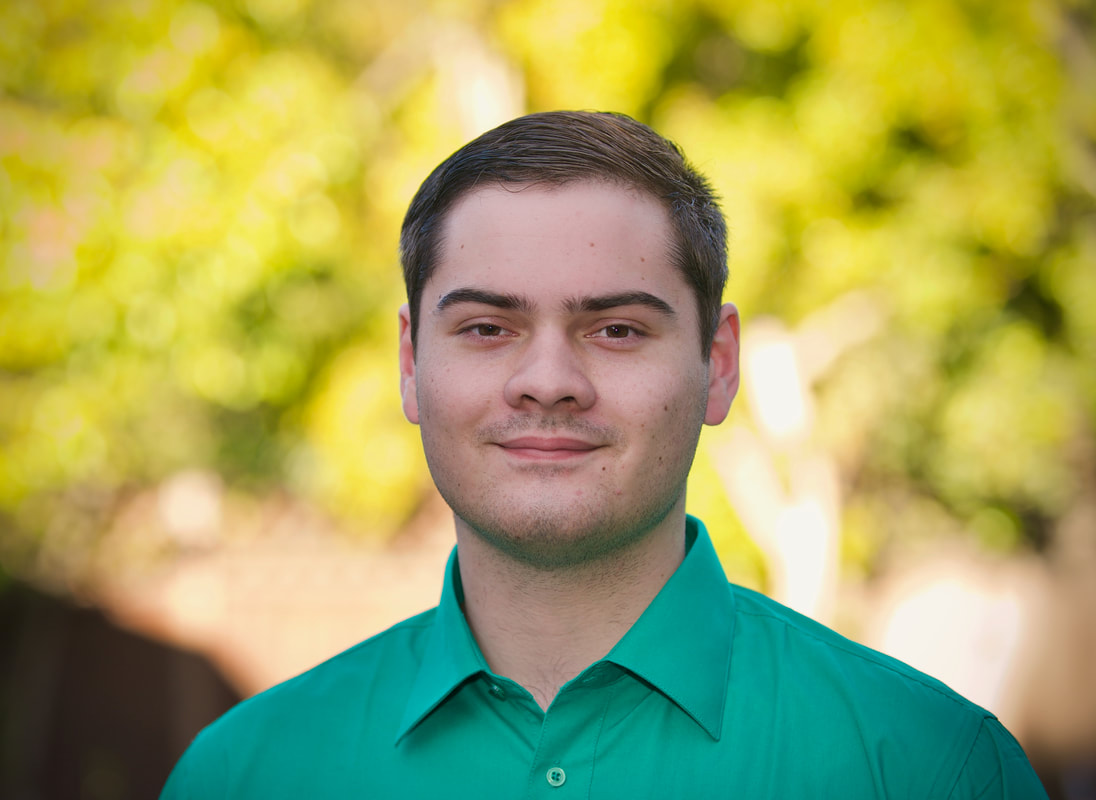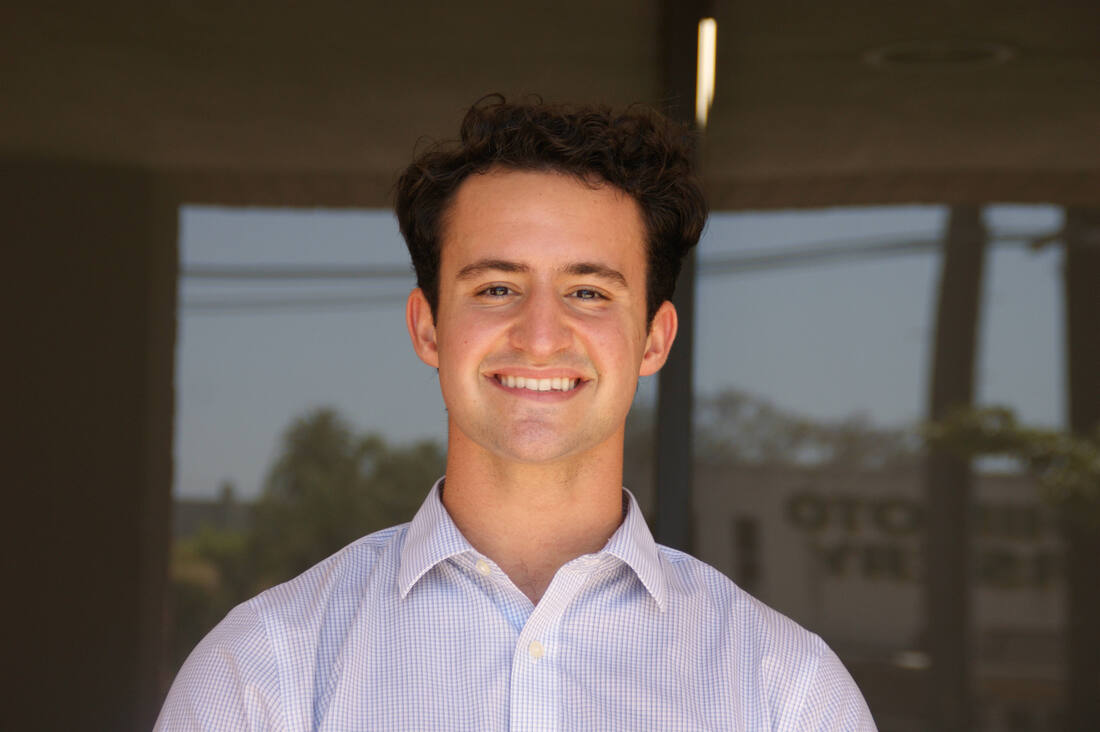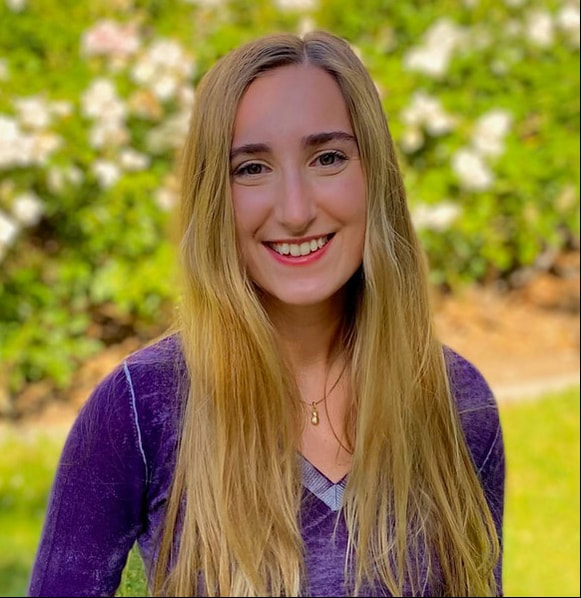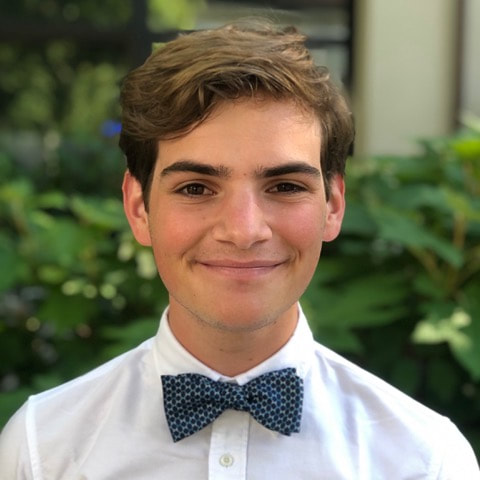Welcome to Pomona's Beckman Scholars site. What is The Beckman Scholars Program? Established in 1997 by the Arnold and Beckman Foundation, The Beckman Scholars Program is an invited program for accredited universities and four-year colleges in the United States. It provides scholarships that contribute significantly in advancing the education, research training and personal development of select students in chemistry, biochemistry, and the biological and medical sciences. The sustained, in-depth undergraduate research experiences and comprehensive faculty mentoring are unique in terms of program scope, content and level of scholarship awards (approximately $26,000 for two summers and one academic year). Click here to visit the Arnold and Beckman Foundation
Our 2020-2023 Beckman Scholars
|
Alexandra Turvey (Mentor: Prof. Andre Cavalcanti)
Alexandra (PO '24) is a biology major working in the Cavalcanti Lab. Her research involves harnessing genomic and computational tools to examine the aminoacyl-tRNA synthetases (aaRSs), an evolutionarily ancient family of enzymes that are key for the successful translation of the genetic code. The overarching goal of this project is to leverage the evolutionary history of the aaRSs to gain new understanding of the genotype-phenotype relationship of human aaRS variants and the diseases they cause. After graduation, Alexandra plans to obtain an MD/PhD in Genomic Medicine and ultimately lead a translational research group identifying both the genetic causes and novel treatments for rare and undiagnosed human diseases. She is a member of the Pomona-Pitzer Swim & Dive team and enjoys long, slow meals with friends and teammates. Santiago Serrano (Mentor: Professor Karen Parfitt) Santiago (PO ‘25) is a neuroscience major working in the Parfitt Lab. His research focuses on the use of the FDA-approved drug acitretin as a potential therapeutic agent for Alzheimer's Disease. His primary research aims to investigate the drug's ability to inhibit the accumulation of amyloid-beta (Aβ) plaques, a hallmark of Alzheimer's pathology. Additionally, Santiago is examining the downstream effects of Aβ plaque reduction on synaptic function and neuronal health, utilizing a combination of electrophysiology to measure neural activity and behavioral assays to assess cognitive functions. These multidimensional approaches aim to provide a comprehensive understanding of acitretin's potential neuroprotective mechanisms. Post-graduation, Santiago intends to pursue an MD/PhD in neurology to further explore disease pathogenesis and therapeutic interventions. In addition to his academic pursuits, Santiago is actively involved in Health Bridges and serving as a Chemistry Liaison. For leisure, Santiago enjoys biking around campus and going to the climbing gym. Samuel Khasnavis (Mentor: Professor Nicholas Ball) Sam (PO ‘21) is a Chemistry & Philosophy double major and Biology minor working in the Ball Lab. As a Beckman Scholar, Sam is investigating the mechanism behind the calcium-based Lewis acid activation of sulfur(VI) fluorides towards Sulfur(VI) Fluoride Exchange (SuFEx). Specifically, Sam is using physical organic chemistry concepts and conducting 19F NMR kinetic experiments to characterize a model SuFEx reaction by its reaction parameters. In collaboration with the OMO Group at Chapman University, Sam’s experimental findings are being mapped onto computational findings modeling the mechanism of activation and predicting factors preventing catalysis. SuFEx chemistry is a recently emerging field within click chemistry and the mechanisms behind these transformations remain largely unexplored. After his time at Pomona, Sam plans to pursue a PhD in chemistry and is open to subsequently obtaining a JD and practicing as a chemical patent attorney. Amongst other activities unrelated to lab, Sam enjoys weight training, throwing discus on the Pomona-Pitzer Track and Field team, curing meat at home, and is notably partial towards cookie dough. Jacob Al-Husseini (Mentor: Professor Mal Johal) Jacob Al-Husseini (PO ’22) is a chemistry major currently working in the Johal group. Through the support of the Beckman Scholars Program, Jacob is working alongside physician-scientists at Children’s Hospital Los Angeles to develop and characterize novel cancer therapeutics for pediatric brain tumors. Specifically, looking at the mechanistic underpinnings and effective range of nanoparticle-based. Auger electron therapy. Auger electrons are high energy electrons ejected from high-Z metal cores when bombarded with external sources of radiation. The emission of these Auger electrons strongly correlates with double-stranded DNA breaks and damage to the mitochondrial membrane, both of which strongly correlate with cellular apoptosis. The key issue that remains to be addressed, however, is the effective therapeutic range of these Auger electrons. Accordingly, Jacob is developing tunable thin-film systems to physically separate nanoparticles from cancer cell culture, systematically increasing the distance between the nanoparticles and cells until cell death is no longer observed. After Pomona, Jacob hopes to pursue a career as a physician-scientist focusing on translational research. While not in the lab, Jacob enjoys rock climbing, ski-mountaineering, and surfing. Daniela Pierro (Mentor: Professor Daniel Martínez) Pierro (PO ’23) is a biology major and philosophy minor working in the Martínez lab. She is using bioinformatic methods to answer questions in molecular ecology, specifically investigating the cellular pathways and gene regulators involved in octocoral bleaching. Millions of marine species rely on reefs for reproduction, spawning, and shelter from predators, and benefit from the physical and trophic structure that octocorals provide. These species face an existential threat, however, as anthropogenic climate change is causing average ocean temperatures to warm. During thermal stress, the mutualism between the coral host and its endosymbiotic zooxanthellae breaks down, robbing the host of its main energy source. Daniela is examining the transcriptomic response of the octocoral Sympodium sp. and its zooxanthellae during this breakdown. Functional enrichment analysis allows the exploration of candidate genes involved in gene regulation and several innate immune response pathways, as well as the identification of unexpected genes and pathways, that may play critical roles in the heat stress response. Her research can help predict corals’ natural adaptive capacities in the context of future warming, as well as inform current conservation efforts. In the future, she aims to pursue a PhD focusing on coral conservation and host-symbiont interactions. Outside of the lab, she loves snorkeling, ceramics, teaching singing lessons, and exploring the outdoors. Louie Kulber (Mentor: Professor Sarah Olson) Louie (PO ’23) is a Classics and Molecular Biology double major working in the Olson Lab. As a Beckman Scholar, Louie is exploring the secretion of proteins with signal peptides in the model organism Caenorhabditis elegans. Specifically, his project focuses on elucidating the secretion pathway of PERM-2, PERM-4, and CBD-1, structural proteins of the vitelline layer of the C. elegans eggshell, a protective extracellular matrix. Preliminary data suggest that these proteins do not use COPII machinery for secretion, despite all encoding signal peptides which should direct them through the conventional COPII-mediated secretory pathway. Proteins with signal peptides represent 30% of genes in the human genome, but their unconventional secretion is not well understood and the extent to which proteins are unconventionally secreted is unknown. To tease apart their secretion pathway, Louie is designing a high throughput genetic screen. With this data, he hopes to assemble a pathway. After Pomona, Louie plans to pursue a career as a physician-scientist in structural and cell biology. Outside of the lab, Louie enjoys languages, outdoor activities, and, most of all, cheese. . |
|
|

